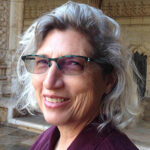LS 120A / Scandinavian 150
Crime, Detection, and Punishment in Literature and Film
Arts and Literature
The literature and film traditions regarding crime and its detection are both an enormously popular form of recreation for audiences around the world and a fascinating subject for closer analysis. Often seen as “popular” or “trivial” or strictly “generic,” crime fiction and films in fact reveal varying cultural attitudes toward deep philosophical questions regarding morality, the individual and society, personal freedom and control, and concepts of value. They also reveal how literary texts employ strategies and trajectories to create doubt, knowledge, and suspense in the reader. Why are these narratives so popular? What is their history and function? How do they work? We will begin with the 13th century Icelandic Saga of Gisli and look at such “serious” literary works as tales of Edgar Allen Poe and Dostoyevsky’s Crime and Punishment. And we will explore the boundary between the “merely” popular/formulaic and the literary by examining works by Eugene Sue (of Paris), Arthur Conan Doyle (of London), film noir, and the thriller. Doyle’s Sherlock Holmes will bring us to discussions of the figure of the detective, who appears in various cultural incarnations from Great Britain to France to Sweden to China. The art of suspense and its creation in words and images will occupy us, as well as a look at the role of the mutilated and murdered body in the aesthetic and detective imagination.
The medium of cinema has been perhaps one of the most significant realms of play for the crime genre, with photographic representation highlighting the horrors of the murdered body and cinematic editing perfecting the art of tension. We will view and analyze The Hound of the Baskervilles (after reading the Conan Doyle novel), Fritz Lang’s M: A City Searches for a Murderer, a Hitchcock film, Roman Polanski’s Chinatown, the stylish French policier film Diva, and the Norwegian neo-noir thriller Insomnia. Some short theoretical readings will round out the syllabus.
